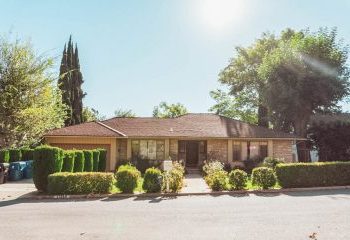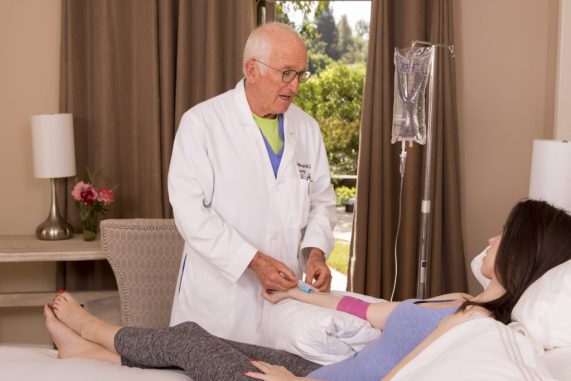Our Gallery
Why patients choose detox & rehab programs at Novo?
Focus on safety & comfort
24/7 supervised detox
Top Rated facility
Effective treatment
Healthy meals
Quick admissions
Evidence-based Therapy
Great locations Nationwide
- Rehab Near Me: Best Detox & Rehab Center for Addiction in Fort Worth
- Why Choose Novo Detox
- Highest Rated Alcohol Detox Program
- Drug Detox Program
- Top Alcohol Rehab in Fort Worth
- Drug Rehab in Fort Worth
- How Much Does Rehab Cost in Fort Worth?
- How Long is Detox?
- How Long is Rehab?
- 30-Day (Short-Term Rehab)
- Long-Term Rehab (60-90 Days)
- Additional Therapies & Treatments Available:
- Does Insurance Have Coverage for Rehab?
- MAT
- Cognitive Behavioral Therapy
- Dialectical Behavioral Therapy (DBT)
- Rational Emotive Behavioral Therapy (REBT)
- Dual Diagnosis Treatment
- EMDR
- Relapse Prevention
- Life Skills Training
- Vocational Training
- Group Therapy
- Experiential Therapy
- One-on-One Therapy
- Family Therapy
- Trauma-Informed Therapy (After PTSD)
- Physical Fitness
- Off-Site Activities
- 12-Step Rehab Fort Worth
- Anxiety Disorder
- Bipolar Disorder
- Borderline Personality Disorder
- Codependency
- Depression
- Impulse Control Disorder
- Post-Traumatic Stress Disorder
- Why Choose Novo Detox
- Recovery-Friendly Things to Do in Fort Worth
- Fort Worth Neighborhoods We Serve
Rehab Near Me: Best Detox & Rehab Center for Addiction in Fort Worth
Drug and alcohol addiction can lead to a long list of health, financial, and personal problems. It is a complex disorder that presents itself differently in each person it affects. Novo Detox offers Fort Worth residents comprehensive treatment programs which will address the physical, psychological, spiritual, and personal effects of substance abuse. Our programs combine conventional treatment methods, with cutting-edge clinical treatments, and traditional healing holistic therapies for a whole-person approach to recovery. Patients graduate from our program with the tools and skills necessary to overcome their addiction and maintain sobriety long-term. Treatment plans are specially tailored to each patient to address all issues related to their unique presentation of addiction.
Why Choose Novo Detox
Novo Detox offers effective addiction treatment in a luxury setting, offering medical detox and inpatient rehab programs. We provide patients with the best in class care from a team of specialized, board-certified medical professionals able to carry out proven, clinically based addiction treatment methods. Patients will detox and recover from the firm grasp of addiction in a calm, comforting environment with the help of knowledgeable, supportive staff. We are part of a nationwide network of top-rated addiction treatment centers with locations across the United States and accredited by the Joint Commission, the gold standard in quality rehab care.
Highest Rated Alcohol Detox Program
Fort Worth residents will find it worthwhile to travel outside of Texas to Novo Detox for our top-rated alcohol detox program. Attempting to detox from alcohol addiction on your own not only often proves to be unsuccessful, but it is also dangerous. Alcohol is one of the few substances which can lead to dangerous and life-threatening withdrawal symptoms, such as seizures. Novo Detox’s board-certified doctors and nurses are available around the clock to monitor patient safety and administer medications to ease withdrawals, including hallucinations and seizures. Patients also have access to holistic therapies such as acupuncture, herbology, and detox massage to help their bodies detox naturally.
Drug Detox Program
Novo Detox also offers a top-rated drug detox program that can help Fort Worth residents struggling with drug withdrawals and cravings. Those who attempt to detox from drugs alone, tend to relapse early and are at risk of developing dangerous withdrawal symptoms. Medically supervised detox at Novo provides patients with 24/7 medical supervision, medication-assisted treatment, and holistic therapies to ensure safety and reduce unnecessary withdrawals and cravings. Drug detox takes place in a non-hospital setting for added comfort and privacy.
Top Alcohol Rehab in Fort Worth
After completing alcohol detox, patients can easily transition into our inpatient alcohol rehab program. Through the use of evidence-based addiction treatment methods, cutting-edge clinical therapies, and traditional holistic healing, patients will uncover and address the root causes of their addiction. Treatment plans are tailored to each individual and will include learning various coping skills and tools necessary to self-manage addiction for a lifetime. Patients reside in a resort-style rehab facility that includes semi-private rooms with modern furnishings, a private chef, and housekeeping services. Treatment programs are highly structured and scheduled with various addiction treatment methods. Residents will also receive ample downtime to destress, reflect, and take advantage of various amenities at the complex.
Drug Rehab in Fort Worth
Drug rehab at Novo Detox allows Fort Worth residents dealing with drug addiction to truly take a break from the stressors, environment, people, and triggers that have contributed to their addiction. Clinical staff will create a personalized treatment plan based on our initial physical and psychological examination. Patients will reside in semi-private, non-hospital setting rooms and enjoy common area amenities including outdoor lounge areas and a pool. They will work and live alongside others on a similar journey toward recovery as they are and provide one another with mutual support. Drug programs are highly structured and your days will be meticulously scheduled to avoid thinking about drug use and provide enough treatments needed for successful recovery.
How Much Does Rehab Cost in Fort Worth?
Novo Detox personalizes every treatment plan, which will make costs vary depending on each patient’s needs. Factors such as the type of program, length of treatment, therapies needed, and medications prescribed will affect the cost of treatment. We accept most major PPO health insurance plans, which may cover some or all your addiction treatments. Our intake specialist can verify your insurance and walk you through your benefits. Clinicians will also consider your budget when creating your treatment program.
How Long is Detox?
Drug and alcohol detox is as long as it takes for your body to eliminate all toxic substances, which will vary from person to person. Detox programs can take anywhere from 3 to 10 days, or even more, to complete. Factors that can determine the length of detox include frequency of substance abuse, length of addiction, age, sex, weight, overall health, the presence of multiple substances, and the presence of co-occurring disorders.
How Long is Rehab?
Rehab programs are tailored to each person and length will be determined on an individual basis. Most Novo Detox patients find they can complete all their recovery milestones within 30 days. However, patients with severe addiction cases or who struggle with co-occurring disorders may complete rehab in 60 or 90 days. We can adjust rehab length depending on how your progress, either shortening it or lengthening it. You are never held at Novo against your will, but we do encourage patients to complete programs as required by clinicians for their best chance at long-term recovery.
30-Day (Short-Term Rehab)
Short-term rehab, or rehab that lasts 30 days or less, is best suited for those with milder addictions. Inpatient 30-day rehab provides an intensive environment needed to truly focus on recovery and recenter yourself. Residential inpatient treatment at Novo allows you to immerse yourself in addiction therapies along with a supportive staff and peers who are on a similar journey towards recovery. 30 days in inpatient rehab can lay the solid foundation needed for long-term recovery.
Long-Term Rehab (60-90 Days)
Patients with moderate to severe drug or alcohol addictions may require long-term rehab which can last between 60 to 90 days. Longer rehab programs can help break deep-seated habits and behaviors contributing to addiction as they may have been present for a long period. Residential inpatient treatment allows Fort Worth residents to live in a safe, stable, and supportive environment needed for sober living and the ability to solely focus on their recovery. Longer program length allows patients to develop sober living skills and recovery principles while avoiding relapse triggers when they are most vulnerable.
Additional Therapies & Treatments Available:
At Novo Detox we can treat a wide range of drug and alcohol use disorders as we offer a variety of addiction treatments and the ability to create highly specialized treatment plans. Our programs incorporate clinically based addiction treatment methods with healing holistic therapies for a whole-person approach. We also include various skills and tool-building to help you succeed in sober living outside the treatment facility.
Does Insurance Have Coverage for Rehab?
Most health insurance plans to cover behavioral health treatment, which includes addiction and dual diagnosis treatment. Your coverage will depend on your health insurance plan. Novo Detox accepts most PPO insurance plans and our intake specialists can verify your insurance to determine your coverage. We will walk you through your benefits and communicate with your insurance provider.
MAT
Medically assisted treatment (MAT) is a major component of our drug and alcohol detox program. Novo Detox uses unique bio-genetic testing rarely found in other detox programs which uses your DNA to select the safest and most effective drugs and dosages based on how your body metabolizes. We use FDA-approved medications to ensure your safety during detox and reduce withdrawals and cravings. MAT can also be used throughout recovery, especially during dual diagnosis treatment to enhance psychotherapy techniques with psychiatric drugs.
Cognitive Behavioral Therapy
Cognitive behavioral therapy (CBT) is a form of behavioral therapy aimed at treating a wide range of mental health disorders including anxiety, depression, and substance abuse. It focuses on how your thoughts can influence your mood and vice versa. CBT is goal oriented and addresses problematic thinking and behaviors, replacing them with more positive ones. This therapy can empower people to realize they can manage their emotions and various situations more healthily, instead of turning to drugs and alcohol.
Dialectical Behavioral Therapy (DBT)
Dialectical behavioral therapy (DBT) is similar to CBT, with the biggest difference in that DBT focuses on validating and accepting uncomfortable feelings rather than changing them. Patients will learn mindfulness, interpersonal effectiveness, distress tolerance, and emotional regulation. DBT aims to help patients analyze their emotions at the moment, accept them, and then implement learned techniques such as distraction and self-soothing skills to cope with intense emotions. DBT is helpful in substance abuse as it helps to reduce impulsivity and deal with triggers.
Rational Emotive Behavioral Therapy (REBT)
REBT is another form of cognitive behavioral therapy, however, REBT places a strong emphasis on beliefs, including irrational ones, and how these influence people’s thoughts, feelings, and actions, which can drive the way someone reacts or behaves. In addiction treatment, REBT focuses on irrational beliefs around one’s substance abuse behavior and they lead to unhealthy actions. Patients will learn how to manage thoughts, behaviors, and emotions more healthily to avoid substance abuse.
Dual Diagnosis Treatment
Dual diagnosis treatment will treat co-occurring disorders such as depression, PTSD, anxiety, and bipolar disorder simultaneously with addiction treatment. These types of mental health disorders are often seen alongside substance abuse. Often people use drugs or alcohol to self-medicate co-occurring disorders or substance abuse can bring out mental health disorders. Our programs at Novo incorporate dual diagnosis treatment to address the root cause of addiction and help patients reach long-term sobriety.
EMDR
Trauma is often seen in recovery patients. At Novo, we incorporate Eye Movement Desensitization and Reprocessing (EMDR) into treatment programs for PTSD cases. This interactive psychotherapy technique relieves past trauma and painful memories by using a series of bilateral (side-to-side) eye movements as you recollect triggering experiences or past traumatic events in small segments until those memories no longer have a physical or emotional effect. It is believed that EMDR works by changing how the brain stores these memories.
Relapse Prevention
At Novo Detox, our treatment programs are aimed at not only healing your addiction but also providing you with a plan to manage your sobriety for a lifetime. Through individual and group therapy, patients will build relapse prevention that will include recognizing signs and symptoms of a relapse, recognizing personal relapse triggers, and developing a plan on what steps to take during each relapse stage. Your relapse plan can also include healthy coping mechanisms, self-care techniques, and a continued addiction treatment schedule.
Life Skills Training
When substance abuse and addiction occur early in life, individuals can miss out on learning important life skills which are universal to others, such as cleaning, cooking, and even doing laundry. Novo Detox uses group classes focused on teaching patients the necessary skills needed to live independently and reintegrate into daily life. These classes can include cooking, cleaning, budgeting finances, building an exercise routine, work-life balance, communication techniques, and mastering interpersonal skills.
Vocational Training
Drug and alcohol addiction can greatly impact your ability to find employment and keep a job. Our vocational training group classes will help you find and maintain stable employment through interviewing skills, resume-building skills, and self-management skills. Having stable employment is not only beneficial for financial independence, but it also creates accountability, reduces financial stress triggers, and improves self-confidence.
Group Therapy
Group therapy is a major part of addiction treatment programs at Novo Detox. Personalized treatment programs will include various group therapy sessions per week which fit your recovery goals. Group therapy sessions are led by a therapist or counselor and can range in a variety of topics including relapse prevention, aftercare planning, daily goals, health and wellness, emotional self-regulation, anger management, psychoeducation, and life skills. The benefits of group therapy include reducing loneliness, learning from peers, and building lasting, supportive friendships.
Experiential Therapy
Therapy does not always have to take place in a traditional setting, which involves sitting one-on-one with a counselor and discussing topics around your mental health. Novo Detox incorporates experiential therapy which is hands-on, engaging activities that can help individuals access and process thoughts, feelings, and past events in ways they could not with traditional therapy. Experiential therapy can include animal therapy, role-playing, creating music, making art, recreational activities, and adventure therapy. This type of therapy may resonate better with some than traditional therapy methods.
One-on-One Therapy
Addiction treatment programs usually focus on one-on-one therapy or individual therapy. You will meet with your primary therapist for several days to discuss various issues surrounding your substance abuse. They will guide you through various behavioral therapies to help you manage emotions, behaviors, and thoughts more healthily instead of needing to turn to drugs or alcohol to self-medicate. You can discuss and work through the most intense parts of your life and addiction in a safe and trusting environment to heal the underlying causes of substance abuse.
Family Therapy
Drug and alcohol addiction can have far-reaching effects, including on your loved ones. As part of our comprehensive treatment programs, we include family therapy to help heal and mend relationships. Family therapy can help you and your loved ones talk through intense feelings, help your loved ones understand how to better support you, and break codependent or enabling behaviors. It can also help fix family dynamics which may be an underlying cause of addiction.
Trauma-Informed Therapy (After PTSD)
Trauma-informed therapy is more about how therapists and treatment facilities interact with clients rather than a form of therapy. Our therapists at Novo detox are specially trained to take into account how trauma and PTSD can affect your recovery program and how you respond to treatment. Trauma can include issues surrounding authority figures, medical care, and other PTSD issues. Therapists will be sensitive to those triggers and ensure each patient feels safe, avoiding re-traumatization.
Physical Fitness
Substance abuse can cause individuals to neglect important components of daily health which can have negative impacts on both emotional and physical well-being. Exercise and physical fitness can serve several purposes in addiction treatment, primarily healing the effects of substance abuse on the body. Exercise can relieve and reduce stress, reintroduce natural levels of endorphins, and strengthen the body. Patients will learn how to create an exercise routine which can help in relapse prevention.
Off-Site Activities
Our recovery programs don’t always take place within the walls of our complex. Off-site activities serve to provide real-world experience during the beginning stages of recovery. Some activities can include going to local areas such as museums, parks, and beaches. Off-site activities allow you to see new sights, try new things, and learn how to have fun without drugs and alcohol. This is also an opportunity to relax and decompress from the emotional and physical hard work of substance abuse treatment.
12-Step Rehab Fort Worth
12-step principles, such as in Alcoholics Anonymous (AA) and Narcotics Anonymous (NA), have helped many with drug and alcohol addiction find and maintain sobriety. At noble detox, we dedicate special group therapy sessions to exploring and discussing spiritual principles of recovery, which are the guiding principles of the original 12-step recovery programs. We encourage our clients to explore and practice these principles as guides to a way of spiritual and personal growth.
Anxiety Disorder
More people suffer from anxiety disorders than any other mental illness in the US. Anxiety disorders are characterized by persistent and unfounded worry and fears which interfere with all areas of a person’s life including relationships, work, school, and social activities. Anxiety symptoms can manifest both physically and psychologically, including sweating, trembling, feeling weak or tired, feeling nervous, having a sense of impending danger, and increased heart rate. Types of anxiety disorders can include generalized anxiety disorder, social anxiety, panic disorder, and agoraphobia. When anxiety begins to interfere with your daily life or you are turning to substance abuse to deal with symptoms, it may be time to seek out treatment.
Bipolar Disorder
Bipolar disorder is a mental health condition that causes extreme mood swings which include emotional highs and lows. Depressive episodes are characterized by feeling sad or hopeless, while manic episodes will lead to feelings of euphoria, high energy, and unusual irritability. Episodes of mood swings can occur frequently, happening every few days, or may rarely occur. Bipolar disorder can be best treated using a combination of psychotherapy and medication-assisted treatment. This disorder is also frequently seen within substance abuse and requires dual diagnosis treatment when a person is experiencing both disorders. Substance abuse can also bring out bipolar disorder in those who were predisposed.
Borderline Personality Disorder
A borderline personality disorder is a mental health disorder that can impact the way you think and feel about yourself and others. Individuals with this disorder may experience self-image issues, difficulty managing emotions and behavior, and a pattern of unstable relationships. Usually, this disorder begins in early adulthood and may worsen in young adulthood, but will gradually get better with age. Those with a borderline personality disorder may have an intense fear of abandonment but also deal with impulsiveness, frequent mood swings, and inappropriate anger which pushes others away. When borderline personality disorder co-occurs with addiction, the effects of both are magnified leading to increased impulsiveness and self-destructive behaviors.
Codependency
Codependency is a learned behavior that can be passed down. It is an emotional and behavioral condition that affects an individual’s ability to have healthy relationships. Codependency is often seen in addiction, whether it is the person with the substance use disorder or a loved one. Those in codependent relationships may want to rescue or enable the other person in an attempt to validate themselves. Codependents may feel that taking care of an addict gives them a sense of worth, driving them to enable the attic to continue abusing drugs or alcohol. Recovering addicts often find that codependency is one of their underlying issues as substance abuse and dependency both lead to feelings of guilt and shame. Codependent and enabling behaviors can be addressed through family therapy at Novo Detox.
Depression
Individuals with depression struggle with a mood disorder that causes persistent feelings of sadness and loss of interest. It is also referred to as major depressive disorder or clinical depression, which affects the way you feel, think and behave. Depression can have various emotional and physical health effects. Individuals with depression may struggle with normal day-to-day activities. You may feel as if life isn’t worth living. Depression is a common co-occurring disorder among individuals struggling with addiction. Substance abuse can trigger or intensify feelings of loneliness, sadness, and hopelessness. Individuals with depression may turn to substance abuse to self-medicate these feelings, only making their disorder worse.
Impulse Control Disorder
Impulse control disorder is characterized by forceful, irresistible, and sudden urges. They can range from emotional reactions to self-destructive behaviors to behaviors that are against the law or societal norms. Impulse control disorders can negatively impact a person’s life but can be managed with psychotherapy and medication-assisted treatment. Substance abuse and impulse control disorders frequently co-occur as they share many of the same characteristics of not being able to control behavior. Both disorders are also believed to involve the dopaminergic “reward system” of the brain.
Post-Traumatic Stress Disorder
Post-traumatic stress disorder PTSD is a mental condition that is triggered by experiencing or witnessing a terrifying or traumatic event. Symptoms can include severe anxiety, uncontrollable thoughts about the event, flashbacks, and nightmares. PTSD is a common co-occurring disorder among addicts as many attempts to deal with traumatic memories of substance abuse. Dual diagnosis treatment at Novo Detox can help individuals struggling with both addiction and PTSD. Our trauma-informed staff is well-trained in properly treating those with PTSD and ensuring their recovery program does not retrigger feelings of trauma. We also use EMDR as an effective tool in treating PTSD.
Why Choose Novo Detox
Patients at Novo Detox receive state-of-the-art medical detox services through a combination of conventional treatment methods, cutting-edge science, proven medication-assisted treatment, and holistic therapies. We are a luxury rehab facility with effective, clinically based addiction treatment programs so you never have to choose between comfort and high-quality care. Fort Worth residents who travel to Novo Detox in Los Angeles will benefit from the added privacy. You can put a greater distance between you and your old drug and alcohol-addiction-fueled life. Our residents also benefit from our private 6-bedroom facility which allows clinicians to place more individualized focus on each patient and ensure every one of their needs is met. Our programs also include organic, healthy, and nutritional meals made by our in-house chef. Residents can enjoy vegetable and fruit juices and smoothies to aid in their recovery as well as holistic therapies such as detox massage, acupuncture, herbology, yoga, and Tai Chi.
Recovery-Friendly Things to Do in Fort Worth
Fort Worth Botanic Garden
3220 Botanic Garden Blvd, Fort Worth, TX 76107
Home to several beautiful and rare plants, Fort Worth Botanic Gardens can provide the perfect spot to relax and take a stroll throughout the year. Visitors can enjoy a flowing waterfall and calming reflecting pond at the Adelaide Polk Fuller Garden, take in the colors and smells of the Rose Garden, or meditate at the Japanese Garden.
Kimbell Art Museum
3333 Camp Bowie Blvd, Fort Worth, TX 76107
During Texas’ hot summer days, visiting the Kimbell Art Museum can get you out of the heat to stroll around the museum taking in some art. Looking at and analyzing art can evoke several emotions and help you work through your own emotions related to your recovery.
Fort Worth Nature Center & Refuge
9601 Fossil Ridge Rd, Fort Worth, TX 76135
With over 2600 acres of forests, prairies, and lakes, Nature Center and Refuge is a favorite outdoor attraction in Fort Worth. Visitors can enjoy over 20 miles of hiking trails and see some animals in their natural habitat.
Urban Air Trampoline Park
9157 Harmon Rd, Fort Worth, TX 76177
This trampoline park can provide fun and exercise for anyone of any age. You can bring out your childlike self and laughter while bouncing around on the over 100 interconnected tramps.
MYT Art Studio & Gallery
3740 S University Dr #204, Fort Worth, TX 76109
Creating art is an excellent way to manage stress and keep busy. MYT Art Studio and Gallery offer fine arts classes to both children and adults. Taking one of their 12-week courses which meet once a week can help provide you with a routine and explore your inner artist.
YogaSix
5924 Convair Dr. Unit 452, Fort Worth, TX 76109
Yoga and meditation can help with relapse prevention as it teaches mindfulness and relaxation techniques. Getting a membership at YogaSix can help you build a yoga routine and meet other health-minded people.
Fort Worth Zoo
1989 Colonial Pkwy, Fort Worth, TX 76110
Fort Worth Zoo is home to over 7,000 native and exotic animals. It has been named one of the top zoos in the nation by the Los Angeles Times, Southern Living magazine, and USA Today. Visiting the zoo provides time outside, getting some exercise, and learn about different animal species from around the world and their habitats.
Fort Worth Neighborhoods We Serve
- Arlington Heights
- Fairmount
- Downtown
- Cultural District
- Rivercrest
- North Richland Hills
- Woodhaven
- Sundance Square
- Tejas Trails
- Step 6
- Ridglea Hills
- North Hi Mount
- Carter Riverside
- Park Glen
- Worth Eights
- Echo Heights
- Mistletoe Heights
- El Poly Pyramid
- Candleridge
- Hulen Heights
- Marine Creek Hills
- The Parks of Deer Creek
- West Meadowbrook
- Westcliff
- Walsh
- Benbrook










